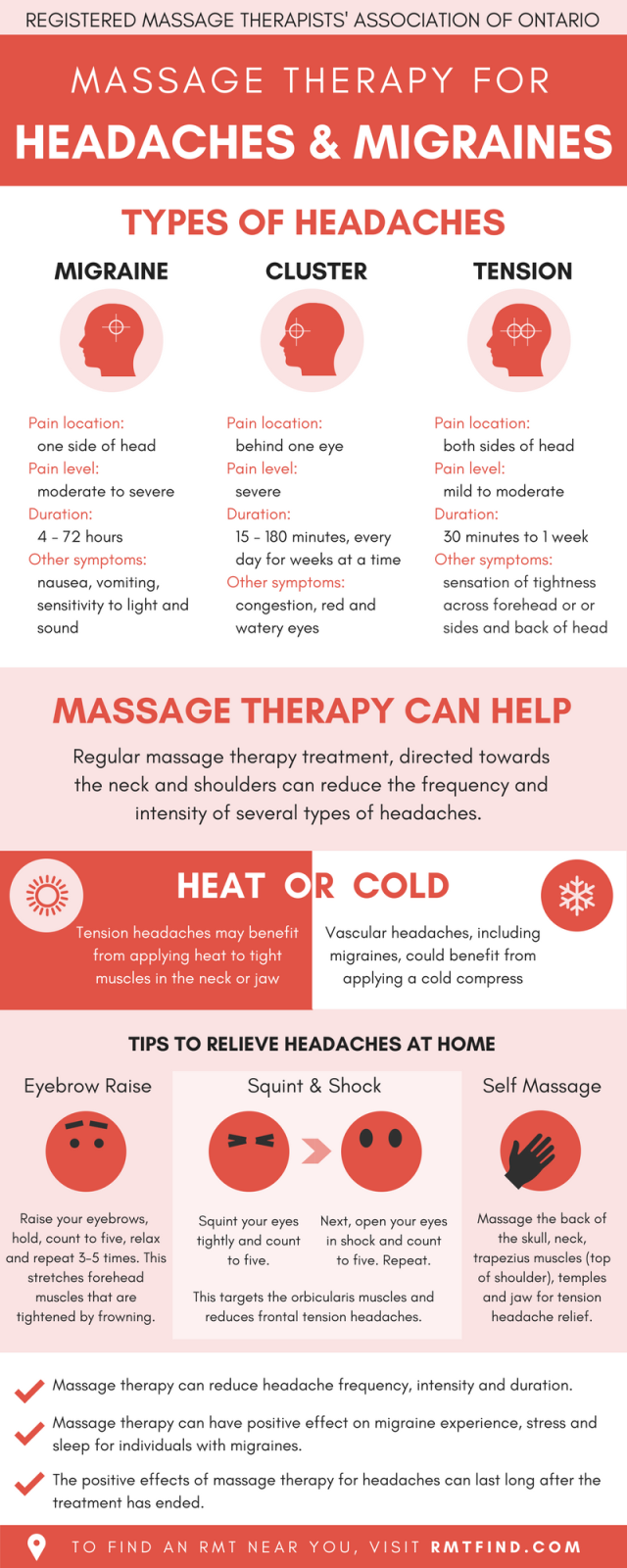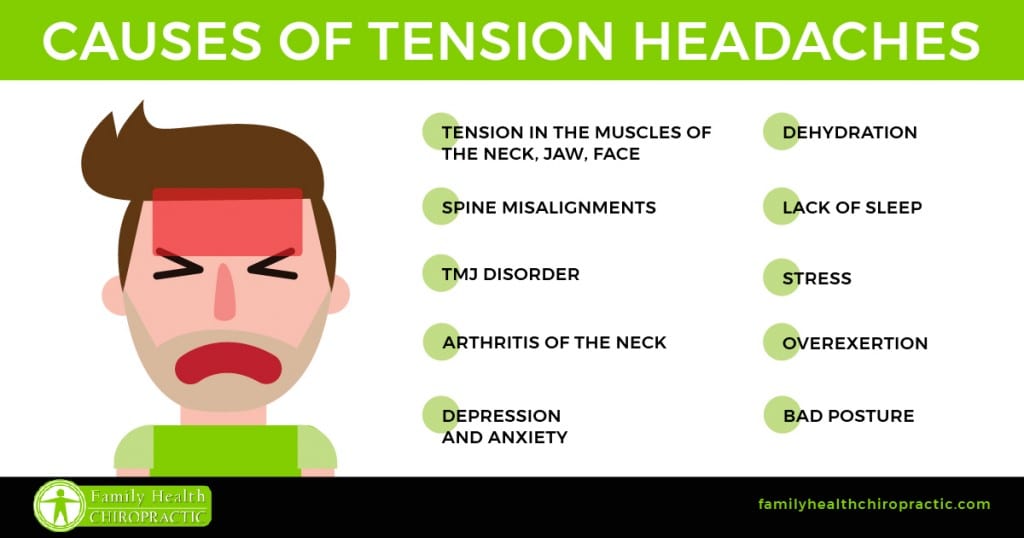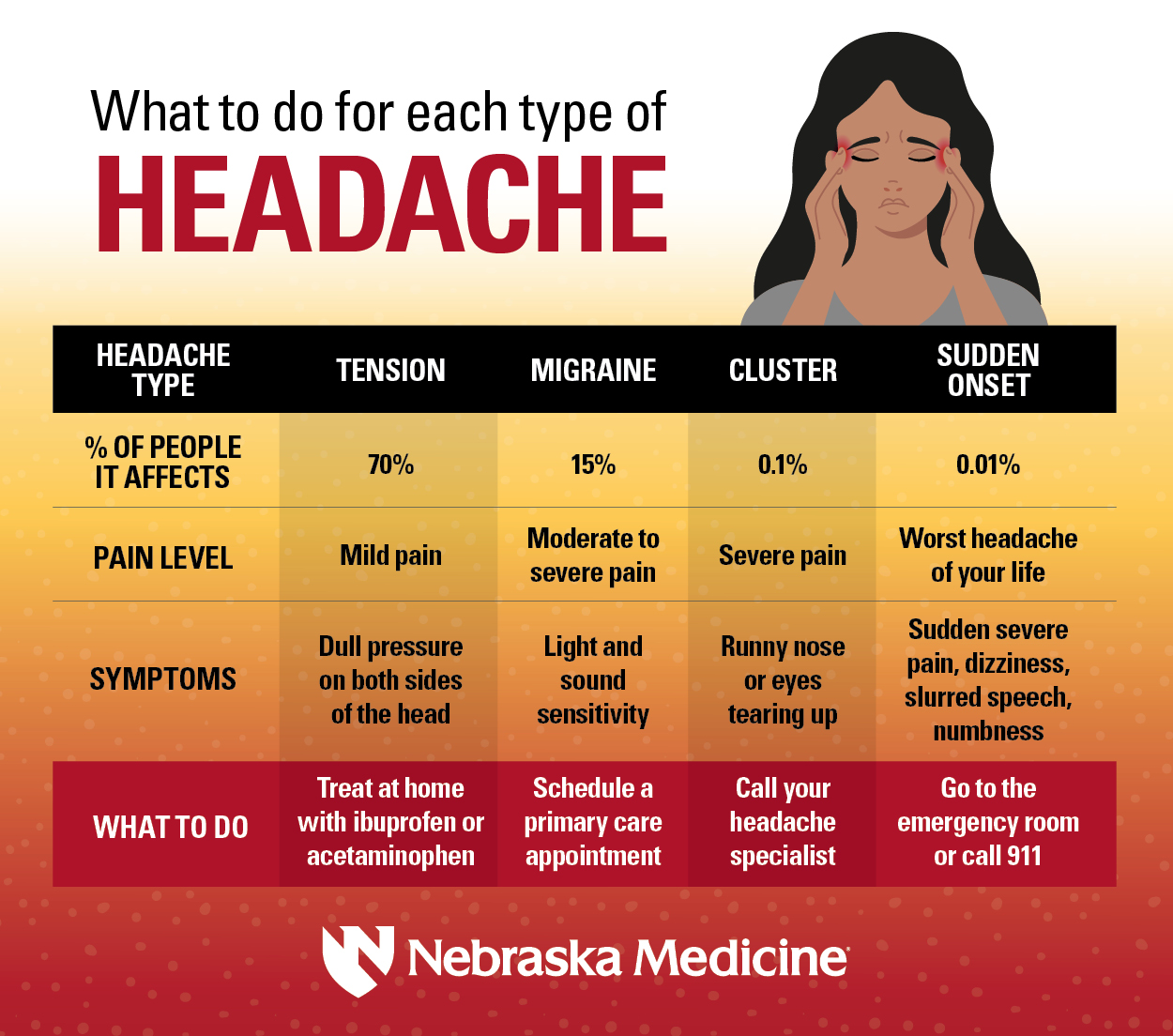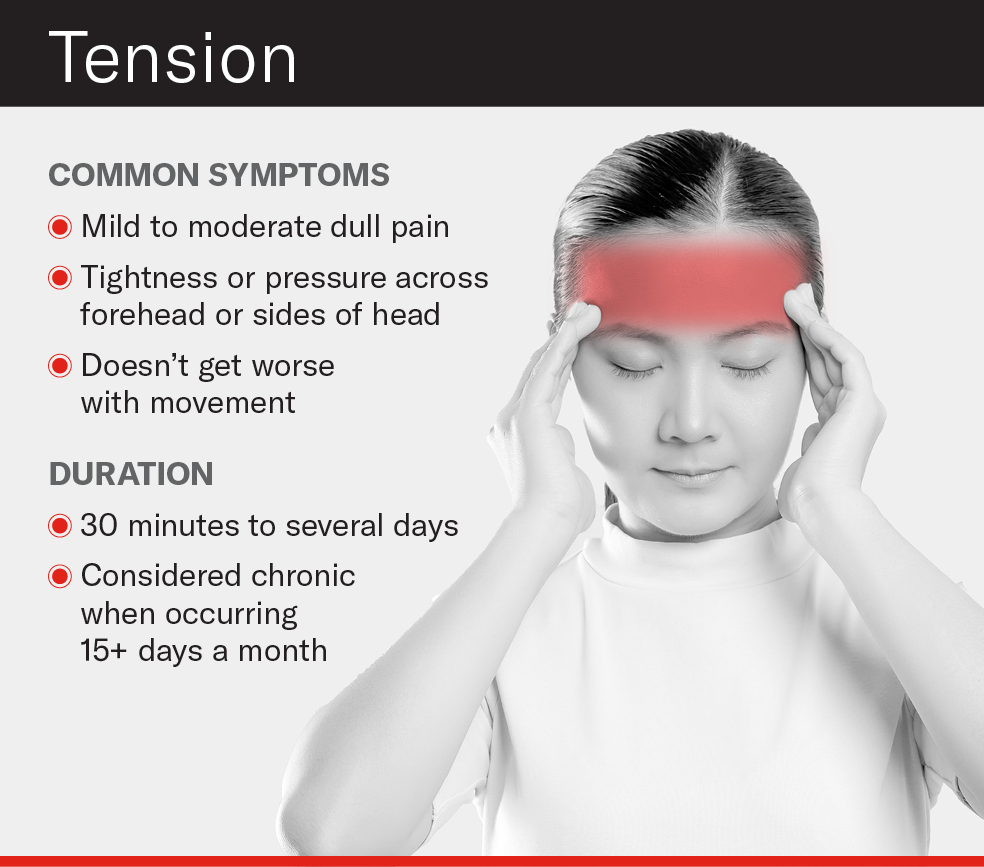Topic how to help with tension headaches: Discover effective strategies to alleviate tension headaches with our guide, offering tips for immediate relief and long-term prevention tailored to your lifestyle.
Table of Content
- Self-Care Measures
- Lifestyle Changes
- Medical Treatment
- Understanding Tension Headaches
- Immediate Relief Techniques
- How can heat therapy help with tension headaches?
- Self-Care and Home Remedies
- YOUTUBE: Mobility Stretches to Relieve Tension Headaches
- Lifestyle Changes for Long-term Relief
- Stress Management Strategies
- Exercises to Prevent Tension Headaches
- When to Seek Medical Advice
- Alternative Therapies and Treatments
- Nutrition and Hydration Tips
- Improving Sleep Habits
Self-Care Measures
- Apply Heat or Cold: Using a heating pad on a low setting, a hot water bottle, a warm compress, or taking a hot shower can relax tense neck and shoulder muscles. Alternatively, applying ice or a cold washcloth to the forehead may provide relief.
- Relaxation Techniques: Regular practice of physical and psychological relaxation therapies, such as deep-breathing exercises, meditation, or yoga, can help prevent tension headaches.
- Exercise: Strengthening and stretching the neck and shoulder muscles through exercise can alleviate and prevent muscle tension that leads to headaches.
- Avoid Trigger Activities: Activities that overstretch the back muscles, like driving for hours, playing video games for extended periods, clenching the jaw, or sleeping on the stomach should be minimized or avoided.

READ MORE:
Lifestyle Changes
- Stay Hydrated: Drinking enough water is essential to prevent dehydration, which can increase the severity of headaches.
- Regular Sleep, Exercise, and Meals: Maintaining regular sleep schedules, engaging in routine physical activity, and eating meals at consistent times can reduce the occurrence of tension headaches.
- Manage Stress: Identifying stressors and learning stress management techniques can minimize the frequency of headaches.
- Monitor Posture: Proper posture, especially while reading or using electronic devices, can prevent neck strain and subsequent headaches.
Medical Treatment
For those experiencing frequent or severe tension headaches, over-the-counter (OTC) medications like Nonsteroidal anti-inflammatory drugs (NSAIDs) can be effective. Ibuprofen, for example, can relieve a headache with just one dose. However, if headaches persist or worsen, it"s important to consult a healthcare provider for a proper diagnosis and treatment plan.

Understanding Tension Headaches
Tension headaches are the most common form of headache, affecting a vast number of individuals worldwide. Characterized by a dull, aching pain, they typically present a sensation of tightness or pressure across the forehead or around the sides and back of the head. This discomfort may be accompanied by tenderness in the scalp, neck, and shoulder muscles.
- Tension headaches can be categorized into two types: episodic and chronic. Episodic headaches occur less frequently, while chronic headaches are more persistent, happening more days than not.
- The exact cause of tension headaches is not well understood, but several factors are thought to contribute, including muscle tension, stress, and changes in brain chemicals.
- Common symptoms include mild to moderate pain that is often described as feeling like a tight band around the head. Unlike migraines, tension headaches do not cause nausea or vomiting, and they are not typically aggravated by physical activity.
- Several triggers have been identified, such as stress, poor posture, lack of sleep, skipped meals, and eye strain from prolonged use of electronic devices.
Understanding these headaches is crucial for developing effective management strategies, which may include lifestyle adjustments, physical therapy, relaxation techniques, and, in some cases, medication.
Immediate Relief Techniques
When tension headaches strike, finding quick relief is a top priority. These techniques can help alleviate the pain and discomfort associated with tension headaches.
- Apply Heat or Cold: A heating pad set on low, a hot water bottle, a warm compress, or a hot towel can relax tense neck and shoulder muscles. Alternatively, an ice pack or a cool washcloth applied to the forehead can also provide relief.
- Relaxation Techniques: Deep breathing, meditation, and yoga can reduce stress and muscle tension, providing immediate relief from headache pain.
- Exercise: Gentle stretching and strengthening exercises for the neck and shoulders can help relieve the pressure causing the headache.
- Hydration: Drinking water can alleviate headache pain, especially if dehydration is a factor.
- Limit Caffeine: While a small amount of caffeine can sometimes help relieve headache pain, reducing overall caffeine intake is beneficial.
- Aromatherapy: Certain essential oils, like peppermint and lavender, can be soothing and provide quick relief when inhaled or applied topically.
- Proper Posture: Adjusting your posture, especially while sitting or working at a desk, can help relieve neck strain and associated headache pain.
Implementing these immediate relief techniques can significantly reduce the discomfort of tension headaches, allowing for a quicker return to daily activities.

How can heat therapy help with tension headaches?
Heat therapy can be a helpful and soothing way to manage tension headaches by relaxing tight muscles and promoting blood flow to the affected area. Here is how heat therapy can help:
- Apply Heat: Using a heating pad or warm towel on the neck and shoulders can help to relax tense muscles that may be contributing to the headache.
- Promote Relaxation: Heat therapy can trigger the body\'s relaxation response, reducing stress and tension in the muscles that can lead to headaches.
- Increase Blood Flow: Heat can help to dilate blood vessels, improving circulation to the area and potentially reducing pain associated with tension headaches.
Self-Care and Home Remedies
Managing tension headaches effectively often involves simple yet impactful self-care and home remedies. These strategies can help mitigate the pain and frequency of tension headaches, fostering a more comfortable and productive lifestyle.
- Heat and Cold Therapy: Apply a warm compress or heating pad to your neck and shoulders to relax muscle tension. Alternatively, a cold pack on the forehead can soothe the pain.
- Essential Oils: Peppermint and lavender oils are known for their calming properties. Apply them topically to the temples, neck, or shoulders, or inhale their scents to reduce headache symptoms.
- Hydration: Drinking sufficient water throughout the day can prevent dehydration-related headaches.
- Limiting Screen Time: Reducing exposure to computer and smartphone screens can alleviate eye strain and prevent headaches.
- Mindfulness and Relaxation: Engage in relaxation techniques such as deep breathing, meditation, or gentle yoga to manage stress and reduce the occurrence of headaches.
- Exercise: Regular, moderate exercise can improve overall health and reduce the frequency of headaches by relieving muscle tension and stress.
- Proper Sleep: Ensure you get enough restful sleep each night to help prevent headaches.
- Healthy Diet: Eating balanced meals at regular intervals supports overall health and can prevent headaches.
- Posture Improvement: Maintaining good posture, especially while sitting for long periods, can reduce muscle strain and prevent headaches.
These self-care measures can be easily incorporated into your daily routine, offering a natural and effective way to manage tension headaches.
Mobility Stretches to Relieve Tension Headaches
Mobility: \"Experience the freedom of movement and discover a world of endless possibilities with our innovative mobility solutions. Watch our video to see how you can elevate your everyday journey!\" Tension: \"Unwind and de-stress with our expert tips and techniques to release tension and restore balance to your mind and body. Let our video guide you towards a state of deep relaxation.\"
Mobility Stretches to Relieve Tension Headaches
Mobility: \"Experience the freedom of movement and discover a world of endless possibilities with our innovative mobility solutions. Watch our video to see how you can elevate your everyday journey!\" Tension: \"Unwind and de-stress with our expert tips and techniques to release tension and restore balance to your mind and body. Let our video guide you towards a state of deep relaxation.\"
Lifestyle Changes for Long-term Relief
Adopting certain lifestyle changes can significantly reduce the frequency and intensity of tension headaches. These changes focus on maintaining overall wellness and preventing the common triggers of headaches.
- Regular Exercise: Engaging in physical activity on a regular basis helps reduce stress and can prevent muscle tension, a common cause of tension headaches.
- Healthy Diet: Eating a balanced diet rich in fruits, vegetables, and whole grains supports general health and can mitigate headache triggers.
- Adequate Hydration: Staying well-hydrated prevents dehydration, a known headache trigger.
- Stress Management: Techniques such as meditation, yoga, and deep-breathing exercises can lower stress levels, thereby reducing the occurrence of tension headaches.
- Regular Sleep Patterns: Maintaining consistent sleep schedules ensures adequate rest, which can prevent headaches.
- Limited Caffeine and Alcohol Intake: Reducing the consumption of caffeine and alcohol can help, as both can be headache triggers.
- Breaks from Screen Time: Taking regular breaks from screens can prevent eye strain and headaches related to prolonged use of digital devices.
- Improving Posture: Good posture, especially while sitting for extended periods, prevents neck and shoulder tension.
Implementing these lifestyle modifications not only contributes to reducing the frequency of tension headaches but also enhances overall health and well-being.

Stress Management Strategies
Effective stress management is key to reducing tension headaches. Stress is a common trigger for these types of headaches, and managing it can significantly decrease their frequency and severity. Here are several strategies to manage stress and minimize its impact:
- Practice Relaxation Techniques: Engage in activities that promote relaxation such as deep breathing exercises, meditation, yoga, or progressive muscle relaxation. These practices can reduce stress and prevent the onset of tension headaches.
- Regular Physical Activity: Exercise is a powerful stress reliever. It not only improves physical health but also boosts endorphins, which can reduce stress levels. Aim for at least 30 minutes of moderate physical activity most days of the week.
- Get Adequate Sleep: Lack of sleep can exacerbate stress and trigger headaches. Ensure you"re getting 7-9 hours of quality sleep each night to help manage stress and reduce headache frequency.
- Set Realistic Goals: Overcommitment can lead to stress. Learn to say no, set realistic goals, and prioritize tasks to manage your time effectively and reduce stress.
- Establish Healthy Habits: Eating a balanced diet, staying hydrated, and limiting caffeine and alcohol intake can help maintain your body"s resilience to stress.
- Take Breaks: When working or studying for long periods, take short breaks to step away from your work. This can help clear your mind, reduce stress, and prevent tension headaches.
- Seek Support: Talking to friends, family, or a professional can help you manage stress by sharing your feelings and receiving support or advice.
By incorporating these stress management strategies into your daily routine, you can significantly reduce the likelihood of experiencing tension headaches and improve your overall well-being.
Exercises to Prevent Tension Headaches
Regular physical activity and specific exercises can significantly reduce the frequency and intensity of tension headaches by relieving muscle tension and stress. Here are some effective exercises designed to prevent tension headaches:
- Neck Stretches: Gently tilt your head towards your shoulder until a stretch is felt on the opposite side of your neck. Hold for 15-30 seconds, then repeat on the other side. This helps relieve neck tension.
- Shoulder Rolls: Slowly roll your shoulders forwards and then backwards in a circular motion. This action helps relax shoulder muscles connected to neck tension.
- Chin Tucks: While standing or sitting, gently pull your head straight back, keeping your gaze forward, to create a "double chin." Hold for 5 seconds, then release. Repeat 10 times to strengthen neck muscles and improve posture.
- Wall Push-Ups: Facing a wall, place your hands flat against it at shoulder width and shoulder height. Bend your elbows to bring your chest closer to the wall, then push back. This exercise strengthens the chest and shoulder muscles, reducing strain on the neck.
- Yoga: Yoga practices focusing on posture, flexibility, and relaxation can help reduce stress and muscle tension associated with tension headaches.
Incorporating these exercises into your daily routine can help manage and prevent tension headaches by strengthening and relaxing the muscles in your neck, shoulders, and back.

When to Seek Medical Advice
While tension headaches are generally not serious, there are circumstances under which you should seek medical attention. Recognizing these signs is crucial for ensuring your health and safety.
- Severe or Sudden Onset: If you experience a headache that is significantly more severe than usual or comes on suddenly, it"s important to seek medical care immediately.
- Persistent or Worsening Symptoms: Headaches that persist despite treatment or worsen over time require evaluation by a healthcare professional.
- Accompanied by Other Symptoms: Headaches accompanied by symptoms such as fever, stiff neck, rash, confusion, seizure, double vision, weakness, numbness, or difficulty speaking may indicate a more serious condition.
- After a Head Injury: If your headache follows a head injury, even if minor, it"s important to get it checked out to rule out concussion or other injury.
- Change in Pattern: A significant change in the pattern or frequency of your headaches should be evaluated.
- Impact on Daily Life: If headaches are impacting your ability to function daily, consult with a healthcare provider for a management plan.
Seeking medical advice when experiencing these symptoms can ensure you receive the appropriate care and treatment. Remember, it"s better to be cautious and consult with a healthcare professional about your symptoms.
Alternative Therapies and Treatments
For those seeking relief from tension headaches outside of traditional medication, alternative therapies offer a variety of options. These treatments can complement conventional approaches, addressing the root causes of tension headaches such as stress, muscle tension, and imbalances in the body.
- Acupuncture: This traditional Chinese medicine technique involves inserting thin needles into specific points on the body to relieve pain and promote healing.
- Massage Therapy: Focusing on the neck, shoulders, and head, massage can reduce muscle tension and stress, common triggers for tension headaches.
- Chiropractic Care: Adjustments to the spine and neck can help alleviate musculoskeletal causes of tension headaches.
- Herbal Supplements: Certain herbs like feverfew and magnesium supplements may reduce the frequency and severity of headaches, though it"s important to consult with a healthcare provider before starting any supplement.
- Yoga and Tai Chi: These practices combine physical postures, breathing exercises, and meditation to reduce stress and tension.
- Biofeedback: A technique that teaches control over certain bodily processes that are normally involuntary, such as muscle tension, to manage headaches.
- Aromatherapy: Essential oils like lavender and peppermint may reduce headache symptoms when inhaled or applied topically.
Exploring these alternative therapies can provide additional tools in the management of tension headaches, offering potential for holistic relief and well-being.

Nutrition and Hydration Tips
Proper nutrition and hydration play a crucial role in preventing and managing tension headaches. Adopting a healthy diet and ensuring adequate fluid intake can significantly impact your overall well-being and reduce headache frequency. Here are some tips to guide you:
- Stay Hydrated: Dehydration can trigger headaches, so it"s important to drink plenty of water throughout the day. Aim for at least 8 glasses of water daily.
- Limit Caffeine and Alcohol: While caffeine can offer temporary headache relief, excessive intake can lead to dehydration and rebound headaches. Alcohol consumption can also trigger headaches in some individuals.
- Magnesium-Rich Foods: Including magnesium-rich foods like leafy greens, nuts, seeds, and whole grains in your diet can help prevent headaches.
- Regular, Balanced Meals: Skipping meals can lead to low blood sugar levels, which might trigger a headache. Ensure you eat balanced meals at regular intervals.
- Limit Processed Foods: Foods high in nitrates, MSG, and artificial sweeteners may trigger headaches in some people. Opt for fresh, whole foods instead.
- Omega-3 Fatty Acids: Foods rich in omega-3s, such as salmon, flaxseed, and walnuts, can help reduce inflammation and may reduce headache frequency.
- Hydration with Electrolytes: If you"re particularly active or sweat a lot, consider beverages with electrolytes to maintain hydration and prevent headaches.
Adapting these nutrition and hydration strategies can contribute to reducing tension headaches and promoting overall health.
READ MORE:
Improving Sleep Habits
Quality sleep is essential for overall health and can be particularly beneficial in managing and preventing tension headaches. Inadequate or irregular sleep can exacerbate headaches, making it crucial to adopt healthy sleep habits.
- Establish a Regular Sleep Schedule: Go to bed and wake up at the same time every day, even on weekends, to regulate your body"s clock.
- Create a Restful Environment: Ensure your sleeping area is quiet, dark, and at a comfortable temperature. Consider using earplugs, eye shades, or white noise machines if necessary.
- Limit Screen Time Before Bed: Reduce exposure to screens at least an hour before bedtime, as the blue light can interfere with your ability to fall asleep.
- Avoid Stimulants: Limit caffeine and nicotine consumption, especially in the hours leading up to bedtime, as they can disrupt sleep.
- Exercise Regularly: Engaging in regular physical activity can promote better sleep, but avoid vigorous exercise close to bedtime.
- Mindful Eating and Drinking: Avoid heavy meals, alcohol, and large quantities of liquids before bed to prevent disruptions in sleep.
- Relaxation Techniques: Practice relaxation strategies such as reading, taking a warm bath, or meditation to ease the transition to sleep.
Implementing these habits can not only improve sleep quality but also help in reducing the frequency and severity of tension headaches.
Embrace these comprehensive strategies to manage and prevent tension headaches, enhancing your well-being and empowering you to lead a healthier, more comfortable life.

:max_bytes(150000):strip_icc()/nausea-from-migraine-1719624-3f48acee8c7e45ba92860a84a1f2b4da.png)


:max_bytes(150000):strip_icc()/migraine-relief-pressure-points-5205811-FINAL-cdc9e0d051cb460bac8baa98bc01954f.jpg)

